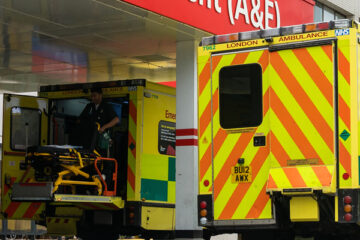Quality in Emergency Care Committee (QECC) News

QECC has continued to thrive thanks to the dedication and enthusiasm of its members. QECC has been active in producing guidance (eg. Clinical Responsibility for referred patients in the ED, NatSIPPS2) and position statements (eg. SNAP therapy of adults and children in paracetamol toxicity, Use of contrast for CT scans, Artificial Intelligence) as well as Safety Bulletins. The committee continues to advocate at a national level, liaising and influencing numerous governmental and NHS agencies as well as other royal colleges.
The RCEM QIP programme has gone from strength to strength with increased engagement from members and specialist subject advisors and remains nationally an extremely highly regarded quality improvement programme. Highlights this year have included a co-produced guide QIP with AoMRC, a five nation consensus on hip fracture management as well as a very successful launch of the Time Critical Medication QIP. We are extremely pleased to announce that Anukiran Ravichandran has been appointed the inaugural RCEM QI Fellow and that we have also successfully recruited members for the new Adolescent Health QIP team which follows on from the successful publication of guidance on the care of adolescents and young adults in the emergency department produced by the Paediatric Emergency Medicine (PEM) Professional Advisory Group (PAG) .
The Mental Health (MH) sub-committee have been very active highlighting the extreme waits MH patients are experiencing whilst awaiting specialist care as well as being very active in other policy areas such raising concerns at a national level regarding the impact of Right Care Right Person including a BMJ editorial. The team have also been active supporting the Adult Self Harm QIP as well as up dating the Mental Health toolkit. The MH Leads WhatsApp group remains active and if you wish to join please contact MHChair@RCEM.ac.uk.
The toxicology specialist interest group (SIG) have had a very productive year with two published guidelines (cannabis induced hyperemesis and nitrous oxide toxicity) as well as running a very successful study day with international experts on a diverse range of topic including radiation hazards. The Older Persons SIG also ran a very well received study day which included topics on frailty , QI and show casing he work of frailty / GEMS teams. The SIG have been awarded funding to look at triage for Silver Trauma. The Public Health SIG’s Agents of Change study day was a great success, highlighted issues of crowding in the ED from a Public health perspective and the need for interventions and solutions which involve behaviour change, education and governmental policies. In 2024 the SIG will be producing guidance on information sharing to help reduce violence.
PHEM PAG have been busy ensuring consistent representation at meetings for JRCALC, IBTPHEM, NASMED and FPHC as well as running a well received study day. They have been focussed on how best to support EM trainees before, during and after PHEM training and are working on strategies to improve equity and diversity in pre-hospital opportunities and careers.
Forthcoming study days in 2024 for QECC include Mental Health (02 February), Public Health (24 May), PHEM (13 June), PEM PAG (20 March), Safer Care (19 March).



0 Comments